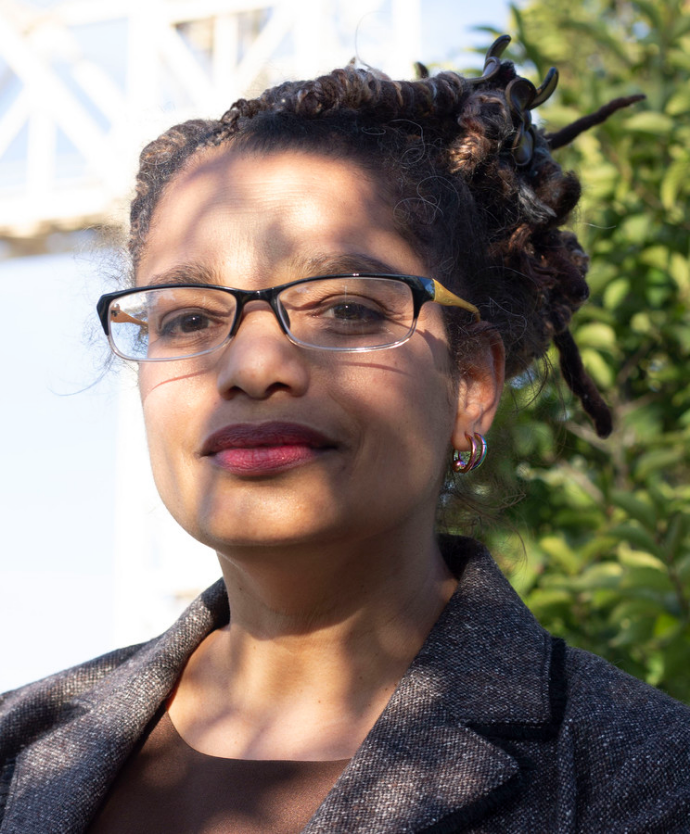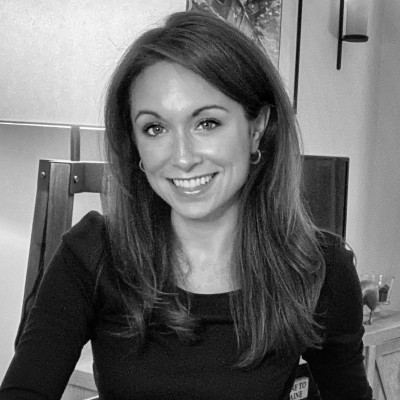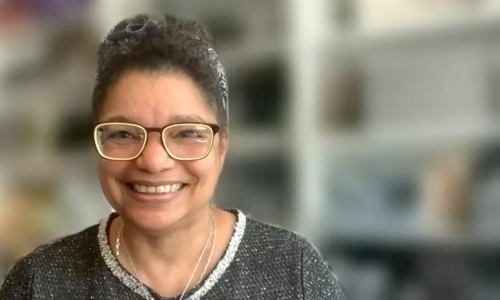Diversity, equity, and inclusion (DEI) sounds simple enough, but its implementation into actionable change is still very much a work in progress. According to Cynthia Billops, Vice President of Operations and Memberships and Belonging at One Step Closer (OSC), there’s a long way to go before we reach the new normal.

“What I love about the DEI acknowledgment is that it presumes work,” Billops said. “It presumes that we need to consciously decide that we are headed for a normal that is more even, fair, just, and equitable.”
We caught up with Billops to learn about her background, how OSC’s initiative JEDI is advancing DEI in the natural products industry, and more.
Q: Tell us first about your background and how your interest in groups of people intersecting and collaborating led you to your role at One Step Closer (OSC).
A: I’ve always been interested in how people come together, especially around problem-solving. I grew up in a series of small towns and was really struck by this sense that even if you didn’t necessarily know your neighbors, people would always come together to find solutions to problems. I also observed the different ways groups of people acted once they were together, which was different than individual actions. There are very specific dynamics that happen when two or more people come together for a variety of reasons and it’s all very fascinating to me.
My career path has been meandering — from nonprofits and co-ops to tech. I interviewed at OSC at a point in my career where I was consciously trying to choose roles where the intersectionality of humans, systems, and social responsibility meet. My current role is perfectly aligned with that.
Q: Tell us about JEDI and some of its exciting initiatives like Pathways to Action.
A: JEDI stands for justice, equity, diversity, and inclusion, and our three pillars are profit, planet, and people. Diversity of ideas and solutions build stronger companies and a more robust economy benefiting all of us. Our goal at JEDI is to make sure that we’re creating programs that help people move their workplaces toward a solution that is just, equitable, diverse, and inclusive. We do this through a series of four programs: a free self-guided pathway that offers an online checklist for those looking to build a more inclusive organization; Jumpstart, which leverages that free tool with a learning management system to stay on track; Trailblazer, which offers an intensive implementation course with cohorts; and our CEO action initiative to help leaders build more equitable companies. What excites us most about our Pathways Program is that it’s designed to keep people going and push that commitment to diversity even further — into action.
Q: You mentioned that you learned a lot from your experience being a black woman in tech. What were some of those key learnings and how did they inspire your work in the natural products space?
A: One of the key contradictions that comes with being a minority in tech is that you are both hyper ‘visible’ and also largely ignored. Because you are often ‘the only’ in the room, people make space for you as a “stand-in” for whomever your ‘obvious identity’ is (example: “Tell us about what Black people are looking for in a product”). But because you are not included or are the single, representative voice in most rooms, your experience is also devalued, underrepresented and/or often misrepresented (because it is not familiar to others, it comes across as biased or untrue). This especially matters in tech because a single developer can create an application that reaches billions of people. Case in point: facial recognition software is unable to identify differences between ‘Asian’ faces and surveillance software currently being used in police departments across the country is 57 percent more likely to flag a brown person as ‘suspicious’ and/or a ‘probable suspect’ than a white person.
My experience in tech showed me how a little diversity can have a huge impact. The food industry, specifically food production, is similar to tech in that it needs to include more diverse people who can bring different perspectives, preferences, and attitudes. Without innovation that both considers and includes more demographics, we’re continuing to enable the racist systems and policies that we codified 200 years ago, while limiting the scalability and sustainability of our companies.
Q: What do today’s natural product companies get right about DEI? What do they get wrong?
A: Food underlies everything — it can make or break a community. People’s ability to not only have access to certain types of food but to have access to food that supports them and their culture, that is recognizable, healthy, and readily available is a basic requirement of us living trauma-free, stable, connected lives.
The majority of the natural products industry reflects white culture. What I’m excited about with OSC and JEDI is that there’s a new emphasis on making sure the food we are creating is not just accessible to different cultures but also reflects the ingrained knowledge (about food use and food prep) that enables non-majority white communities to sustain themselves and thrive. More companies are prioritizing awareness that DEI is essential to long-term growth. Leadership is committing to cultural change — CEOs are leading from moral certainty while still being open to diverse perspectives and input. All good news.
Where the industry needs work is around prioritized action. Too many businesses “virtue signal” — using white words on black backgrounds to show their concern instead of putting money and resources behind internal structures, practices, and policies that enable inclusion. Diversity in leadership can and will address this as more leaders will be into positions where they can prioritize effective DEI efforts. Finally, we need to stop assuming that DEI needs to be “bought into” to be effective. As with most social change, we will always have a group of folks who do not agree with either the direction or the premise of the change. Having said that, these are business practice policies. We don’t ask how people feel about maternity leave anymore. Nor do we ask people how they feel about children working 12-hour shifts instead of attending school. Time after time, we, as a business-led society, have thrown our weight behind policies and practices that are better for people, our future, and bottom-line profits. Implementing JEDI is no different and I’d love to see more of that attitude applied to cultural equity and inclusion efforts.
Q: How has diversity in action evolved since 2020?
A: There were a series of epic shocks to ‘business as usual’ following the realization that, from a social justice standpoint, we are not nearly as far along as a society as we thought. Covid both highlighted the inherent risk in our current healthcare system set-up and allowed the mental space for a lot more people to realize how targeted minority populations really are. One huge silver lining in all of this is that things that we thought (and were told) were impossible, became possible – like the idea of working from home. Many organizations were convinced it could not possibly be sustainable or productive until they had to figure out how to make it work. Having a largely remote workforce has increased accessibility to different kinds of jobs for different kinds of people. It’s opened up the labor market in really amazing ways. From a JEDI standpoint, we see people who are working as consultants and coaches who are able to be in HR positions in different cities across the country from where they’re based. I’m fascinated by the unintentional integration and expect amazing gains in “human-first” systems that work for a larger pool of people being implemented.
Q: From a hiring perspective, we at ForceBrands have observed a growing trend among organizations hiring DEI leaders and in-house coaches, especially in the past two years. How should this role/department best be utilized? How do you foresee it evolving?
A: In the early 2000s, companies moved toward an organizational health model instead of human resources, which is typically a department designed to help an organization and is less focused on people. Today, many companies are more invested in their people than ever. I’m seeing a shift to more DEI-exclusive practices and assessments. That shift is necessary because organizational health assumes everyone is at the same place and has the same career path, which is not the case. To me, DEI is that level up that’s building the new normal that’s going to raise everybody into a better situation. As DEI becomes more ingrained in organizational health and human resources, it will also become a more nuanced career path.






